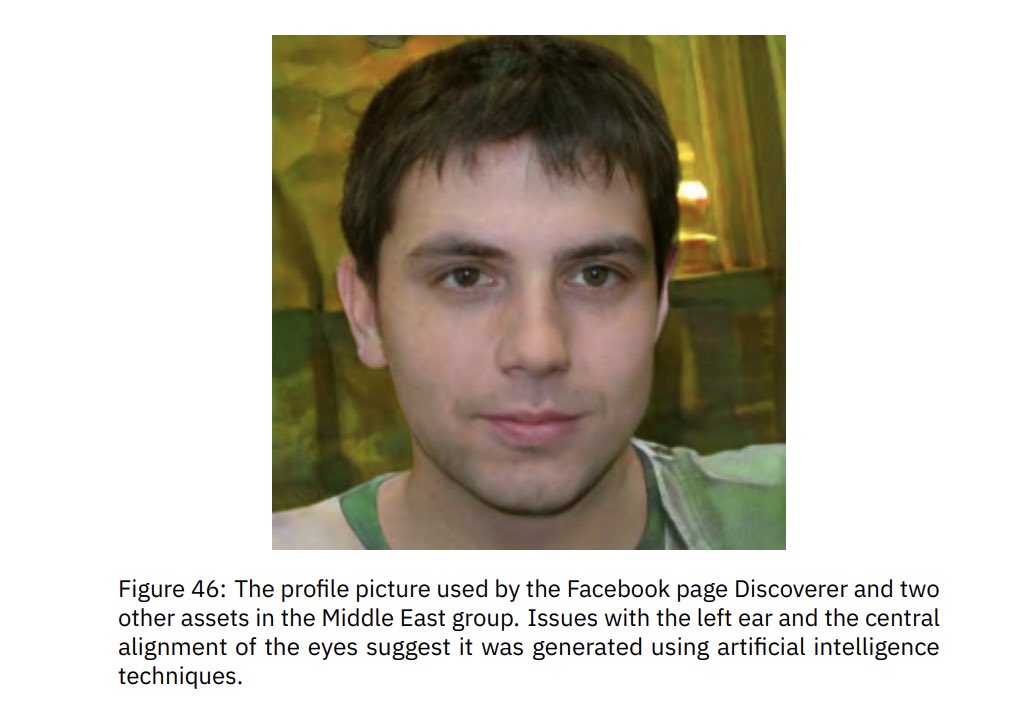The Twitter Files show us how cynical the US government tried, and often succeed, to shape how we perceive reality. But they also show those of us that weren’t buying the propaganda that they aren’t slowly going insane.
 This podcast episode was recorded with a live audience on my Twitch channel. Recordings of these streams get saved to a YouTube playlist so you can watch them on demand at your leisure.
This podcast episode was recorded with a live audience on my Twitch channel. Recordings of these streams get saved to a YouTube playlist so you can watch them on demand at your leisure.
Overview of My Episodes on The Twitter Files
In my first episode on The Twitter Files, I discussed how the story broke and how shadowbanning worked on Twitter:
In the second episode, I explained how Twitter supressed the Hunter Biden laptop story, how the FBI got into the business of monitoring and censoring people’s speech and how they influenced the executives of social networks and the press. I also discussed how the mainstream media discredited the Twitter Files reporting on behalf of the US security state:
In this third episode, I will talk about the social impact of these revelations and what we learned about our society in the wake of them. I will talk about how what we used to perceive as reality, influenced by social media, is not as close to what is actually happening as we might have thought. I will also discuss the Pentagon’s propaganda efforts on Twitter and the company’s hypocrisy when it comes to how it dealt with this compared to other propaganda.
At the moment, I also plan two further episodes on this topic: The Twitter Files, Part 4 should deal with how Twitter censored dissidents, contrarian opinions and inconvenient facts during the pandemic. The Twitter Files, Part 5 will look at all the different branches of the US government that sent requests for censorship, channelled by the FBI, to Twitter. This episode will also look at how Twitter was forced to let this happen and at all the other tech companies, aside from Twitter, that were (and presumably still are) part of this censorship scheme.
The Road Back to Reality
Writing about his experience in reporting on The Twitter Files, Matt Taibbi (on Christmas Eve) said the following:
Sometime in the last decade, many people — I was one — began to feel robbed of their sense of normalcy by something we couldn’t define. Increasingly glued to our phones, we saw that the version of the world that was spat out at us from them seemed distorted. The public’s reactions to various news events seemed off-kilter, being either way too intense, not intense enough, or simply unbelievable. You’d read that seemingly everyone in the world was in agreement that a certain thing was true, except it seemed ridiculous to you, which put you in an awkward place with friends, family, others. Should you say something? Are you the crazy one?
I can’t have been the only person to have struggled psychologically during this time. This is why these Twitter files have been such a balm. This is the reality they stole from us! It’s repulsive, horrifying, and dystopian, a gruesome history of a world run by anti-people, but I’ll take it any day over the vile and insulting facsimile of truth they’ve been selling. Personally, once I saw that these lurid files could be used as a road map back to something like reality — I wasn’t sure until this week — I relaxed for the first time in probably seven or eight years.
Something tells me the coming year is going to be a better one.
What Taibbi describes here explains why, to me, The Twitter Files are so important. Why they are the biggest tech story of 2022 and approach, in their importance and revelatory insight, the Snowden disclosures of 2012. Both of these stories pull back the wool from our eyes. They show those involved in the arcana of technological progress that their suspicious rumourings were born out by reality. And they show the ones who have just been bumbling along, using technology because they were told what it does and why they need it, that reality differs significantly from what they were led to believe it would be like. Behind the murky veil of PR speak, government propaganda and well-meaning oversimplification, a new truth takes shape: We have — once again — been surveilled, our opinions have been catalogued and we have been manipulated and lied to.
The Twitter Files show us that intelligence services like the FBI and the CIA, the US military as well as both the governments of Donald Trump and Joe Biden have made it their business to catalogue and censor people’s opinions. They show us that social media wasn’t as much of an organic exchange as we had previously believed. That opinions were suppressed, hidden and outright deleted, simply because they weren’t the opinions of those who hold the reins to our society. It started when Hilary Clinton lost the election in 2016. In every crisis since — Trump trying to get re-elected, the pandemic, the rekindled war in Ukraine — the US government and its many agencies and offices have tried to shape public opinion around its own dogmas. And they have done so by coercing social media platforms to manipulate reality as we see it though the lens of these services. In effect, the US government and these software companies have done exactly what the press — fuelled by the same propaganda dogmas — for years has been accusing regimes like Russia and China of. Thus, in being told to fight the enemy, we have become the enemy.
But, as Taibbi also points out, this news is not all bad. At least we now have definite proof that this has been happening. Proof we can point our friends and relatives at, the next time they declare us mentally unsound for suspecting that Silicon Valley has been manipulating us. Or to show them that the opinions we hold are not as isolated as they would like to believe — or rather, that these opinions are precisely that isolated because the government doesn’t want them to spread. Just like Snowden has vindicated all of the “conspiracy theorists” who believed the NSA was spying on all of us, Taibbi and his colleagues have vindicated those “conspiracy theorists” who felt like their opinions were ridiculed and suppressed with ill intent by those in power.
The Pentagon’s Propaganda on Twitter
Getting back to concrete revelations from The Twitter Files, it’s amazing to see the level of hypocrisy that was at work over at Twitter – and at the US government. As Lee Fang reports for The Intercept, Twitter actively aided the US military’s propaganda efforts, even though the company was publicly claiming to actually fight propaganda (or “misinformation”, as it usually called it).
On July 26, 2017, Nathaniel Kahler, at the time an official working with U.S. Central Command – also known as CENTCOM, a division of the Defense Department – emailed a Twitter representative with the company’s public policy team, with a request to approve the verification of one account and “whitelist” a list of Arab-language accounts “we use to amplify certain messages.”
“We’ve got some accounts that are not indexing on hashtags – perhaps they were flagged as bots,” wrote Kahler. “A few of these had built a real following and we hope to salvage.” Kahler added that he was happy to provide more paperwork from his office or SOCOM, the acronym for the U.S. Special Operations Command.
Twitter at the time had built out an expanded abuse detection system aimed in part toward flagging malicious activity related to the Islamic State and other terror organizations operating in the Middle East. As an indirect consequence of these efforts, one former Twitter employee explained to The Intercept, accounts controlled by the military that were frequently engaging with extremist groups were being automatically flagged as spam.
In his email, Kahler sent a spreadsheet with 52 accounts. He asked for priority service for six of the accounts, including @yemencurrent, an account used to broadcast announcements about U.S. drone strikes in Yemen. Around the same time, @yemencurrent, which has since been deleted, had emphasized that U.S. drone strikes were “accurate” and killed terrorists, not civilians, and promoted the U.S. and Saudi-backed assault on Houthi rebels in that country.
Other accounts on the list were focused on promoting U.S.-supported militias in Syria and anti-Iran messages in Iraq. One account discussed legal issues in Kuwait. Though many accounts remained focused on one topic area, others moved from topic to topic. For instance, @dala2el, one of the CENTCOM accounts, shifted from messaging around drone strikes in Yemen in 2017 to Syrian government-focused communications this year.
On the same day that CENTCOM sent its request, members of Twitter’s site integrity team went into an internal company system used for managing the reach of various users and applied a special exemption tag to the accounts, internal logs show. The effect of the “whitelist” tag essentially gave the accounts the privileges of Twitter verification without a visible blue check. Twitter verification would have bestowed a number of advantages, such as invulnerability to algorithmic bots that flag accounts for spam or abuse, as well as other strikes that lead to decreased visibility or suspension.
Kahler told Twitter that the accounts would all be “USG-attributed, Arabic-language accounts tweeting on relevant security issues.” That promise fell short, as many of the accounts subsequently deleted disclosures of affiliation with the U.S. government. The Intercept identified several accounts that initially listed themselves as U.S. government accounts in their bios, but, after being whitelisted, shed any disclosure that they were affiliated with the military and posed as ordinary users.
It seems the Pentagon actually used some quite state-of-the-art technology to help give these accounts an air of authenticity.
One of the accounts that Kahler asked to have whitelisted, @mktashif, was identified by the researchers as appearing to use a deep-fake photo to obscure its real identity.
Initially, according to the Wayback Machine, @mktashif did disclose that it was a U.S. government account affiliated with CENTCOM, but at some point, this disclosure was deleted and the account’s photo was changed to the one Stanford identified as a deep fake. The new Twitter bio claimed that the account was an unbiased source of opinion and information, and, roughly translated from Arabic, “dedicated to serving Iraqis and Arabs.” The account, before it was suspended earlier this year, routinely tweeted messages denouncing Iran and other U.S. adversaries, including Houthi rebels in Yemen.

Deepfake image used by a DOD propaganda account, as identified by a Stanford Internet Observatory report
This is in direct contradiction to Twitter claiming it was fighting state-sponsored misinformation.
For many years, Twitter has pledged to shut down all state-backed disinformation and propaganda efforts, never making an explicit exception for the U.S. In 2020, Twitter spokesperson Nick Pickles, in a testimony before the House Intelligence Committee, said that the company was taking aggressive efforts to shut down “coordinated platform manipulation efforts” attributed to government agencies.
In 2018, for instance, Twitter announced the mass suspension of accounts tied to Russian government-linked propaganda efforts. Two years later, the company boasted of shutting down almost 1,000 accounts for association with the Thai military. But rules on platform manipulation, it appears, have not been applied to American military efforts.
Twitter knew about these accounts and did nothing.
The emails obtained by The Intercept show that not only did Twitter whitelist these accounts in 2017 explicitly at the behest of the military, but also that high-level officials at the company discussed the accounts as potentially problematic in the following years.
Jim Baker, then the deputy general counsel of Twitter, in the same thread, wrote that the Pentagon appeared to have used “poor tradecraft” in setting up various Twitter accounts, sought to potentially cover its tracks, and was likely seeking a strategy for avoiding public knowledge that the accounts are “linked to each other or to DoD or the USG.” Baker speculated that in the meeting the “DoD might want to give us a timetable for shutting them down in a more prolonged way that will not compromise any ongoing operations or reveal their connections to DoD.”
Twitter executives remained aware of the Defense Department’s special status. This past January, a Twitter executive recirculated the CENTCOM list of Twitter accounts originally whitelisted in 2017. The email simply read “FYI” and was directed to several Twitter officials, including Patrick Conlon, a former Defense Department intelligence analyst then working on the site integrity unit as Twitter’s global threat intelligence lead. Internal records also showed that the accounts that remained from Kahler’s original list are still whitelisted.
Until The Washington Post revealed publicly that these accounts existed.
Following the mass suspension of many of the accounts this past May, Twitter’s team worked to limit blowback from its involvement in the campaign.
Shortly before publication of The Washington Post story in September, Katie Rosborough, then a communications specialist at Twitter, wrote to alert Twitter lawyers and lobbyists about the upcoming piece. “It’s a story that’s mostly focused on DoD and Facebook; however, there will be a couple lines that reference us alongside Facebook in that we reached out to them [DoD] for a meeting. We don’t think they’ll tie it to anything Mudge-related or name any Twitter employees. We declined to comment,” she wrote. (Mudge is a reference to Peiter Zatko, a Twitter whistleblower who filed a complaint with federal authorities in July, alleging lax security measures and penetration of the company by foreign agents.)
Producer Feedback
I value your input greatly. If you have any opinions or remarks on the things discussed in this, or previous episodes, or ideas for future ones, please contact me.
In reference to our discussion about education on episode 139, l_terrestris_jim said on the forum:
I think the topic education is certainly interesting. The internet most definitely has a big influence on the education. But as with most things there are two sides to the coin.
It means you have almost all the knowledge at your fingertips. But it also means that misinformation can be spread really easily.
Therefore the skills critical thinking and the ability to check sources for their credibility become increasingly important. However schools seem to be very slow in catching up to this development.
I also feel, that schools teach less and less skills that have use in everyday life. I think some years back there was a discussion (I believe it was in Germany) that high school students learn to analyse poems, but have no idea how insurances work, or something like that. And the example in the episode that the student didn’t know how to write a letter at least points in the same direction.
In the discussion the question was asked why we see a similar development in different systems. My idea is that a common development in a lot of systems is the following. In my opinion a lot more students (or their parents) believe, that you have to go to university after school. And I think a lot of education systems cater to that thinking. It feels to me that school today prepares the students more to pass tests, than to actually understand the topics that are being taught. This means that the curriculum is streamlined accordingly which leads to the same effect in different systems. Admittedly I did not research the numbers for this theory.
Evgeny Kuznetsov seemed to agree that the situation in Russia was similar.
Sounds about right to me. In Russia, the common misconception of “everyone should get a university education” lead to noticeable devaluation of the said education.
Credits
This podcast is provided free of charge and free of obligations under the value-for-value model. However, as a freelance journalist volunteering my time to produce this show, I need your support. If you like my work and want to make sure The Private Citizen keeps going, please consider joining my Patreon.
Special thanks to Patrick Wieland for his Christmas gift to the show!
Showrunners
- Sir Galteran
- IndieGameiacs
Executive Producers
- Butterbeans
- Jaroslav Lichtblau
- Rizele
- Sandman616
Supervising Producers
1i11g, avis, Bennett Piater, Dave, ikn, Jackie Plage, Jonathan M. Hethey, krunkle, Michael Mullan-Jensen, Robert Forster
Producers
Andrew Davidson, astralc, Cam, Captain Egghead, David Potter, Dirk Dede, Florian Pigorsch, Joe Poser, Michael Small, Mika, MrAmish, Rick Bragg, RJ Tracey
Associate Producers
Barry Williams, D, Jonathan, Juhan Sonin, Kai Siers, RikyM, Steve Hoos, Vlad
Thanks to Bytemark, who are providing the hosting and bandwidth for this episode’s audio file.
The show’s theme song is Acoustic Routes by Raúl Cabezalí, licensed via Jamendo Music. This episode’s ending song is See You in Court by Ludvig Moulin via Epidemic Sound.
